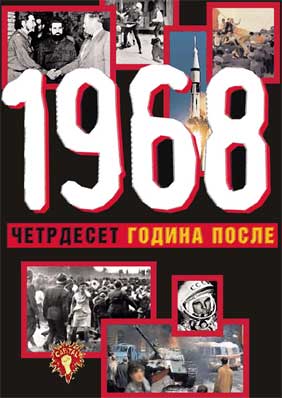Unutrašnjopolitičke i vanjskopolitičke aktivnosti Jugoslavije nakon intervencije Varšavskog pakta u Čehoslovačkoj 1968. godine
Yugoslavia’s Activities in Domestic and Foreign Policy after
the Intervention of the Warsaw Pact in Czecholsovakia in 1968
Author(s): Hrvoje Klasić
Subject(s): Diplomatic history, Military history, Political history, Social history, Post-War period (1950 - 1989)
Published by: Institut za noviju istoriju Srbije
Summary/Abstract: Five countries of the Warsaw Pact committed the act of military aggression on Czechoslovakia in late August 1968. That was the culmination of pressure on the Czechoslovak political leadership aimed at putting an end to political, economic and social changes in that country. Tito’s Yugoslavia was a country which followed the developments in Czechoslovakia with particular interest. From the very beginning, the reaction of the Yugoslav political, but also general public was unanimous, and it boiled down to condemnation of the intervention and support for the Czechoslovak people and leadership. Parallel with the reactions to the situation in Czechoslovakia, a theory was launched, prophesizing the continuation of the military intervention precisely in Yugoslavia.
In order to successfully defend the country, the Yugoslav political leaders started a number of activities in domestic and foreign policy. The activities in the internal policy comprised mobilization of the society on the one hand, and defensive military preparations on the other. The latter caused difficulties, not only due to the preponderance of the aggressor, but also due to the necessary changes in the existing defence system.
In the field of foreign policy Yugoslavia strove to utilize the position she had been building up on the international scene for years. As one of the leaders of the Non-Aligned Movement, Yugoslavia also used Czechoslovakia’s example to stress the need for peaceful resolution of problems in the world. Furthermore, ever since the split with Stalin, Yugoslavia normalized her political and economic relations with the West. By keeping and even strengthening these relations in the new situation, the capitalist West stepped to the fore as one of the most important factors of the socialist Yugoslavia’s stability.
The Yugoslav society of the second half of 1960s faced a number of problems, particularly of internal economic and political character. In the course of 1968 the dissatisfaction with the situation culminated in the students’ revolt and strike. The possibility of the country being endangered also from without at such a moment, poised an additional problem. However, despite fears and prognosis, the possibility of an attack from the East and the atmosphere created in connection with that, caused a reverse effect. The respect for the Party was renewed, the society was homogenized once again, and Yugoslavia’s reputation in the world was strengthened. The spoiled relations with the countries of the Warsaw Pact, particularly with the USSR, were not of long duration. Instead of a military intervention, the relations were completely normalized already next year. This normalization was hailed in Yugoslav, but also in the world public, as another victory over the „Big Communist Brother”.
Book: 1968 - четрдесет година после
- Page Range: 519-547
- Page Count: 29
- Publication Year: 2008
- Language: Croatian
- Content File-PDF

